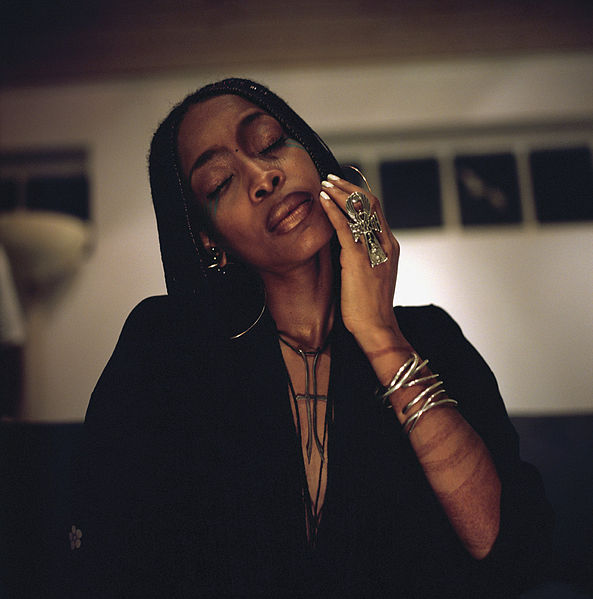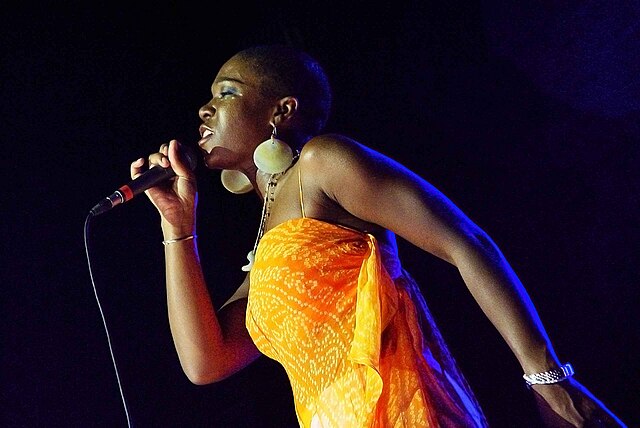Neo soul is a genre of popular music. As a term, it was coined by music industry entrepreneur Kedar Massenburg during the late 1990s to market and describe a style of music that emerged from soul and contemporary R&B. Heavily based in soul music, neo soul is distinguished by a less conventional sound than its contemporary R&B counterpart, with incorporated elements ranging from funk, jazz fusion, hip hop, and African music to pop, rock, and electronic music. It has been noted by music writers for its traditional R&B influences, conscious-driven lyrics, and strong female presence.
Common (shown in 2003) wore knit caps fashioned in the style of Marvin Gaye.
Maxwell, one of neo soul's original successes, in 1998
Although she rejects the term, Erykah Badu has been called "the first lady of neo soul" and "the queen of neo-soul".
Jill Scott (top) and India.Arie (bottom), two of the top-selling neo soul singers of the early 2000s
Progressive soul is a type of African-American music that uses a progressive approach, particularly in the context of the soul and funk genres. It developed in the late 1960s and early 1970s through the recordings of innovative black musicians who pushed the structural and stylistic boundaries of those genres. Among their influences were musical forms that arose from rhythm and blues music's transformation into rock, such as Motown, progressive rock, psychedelic soul, and jazz fusion.
Hitsville U.S.A., Motown's former studio-headquarters and now museum, with photos of Marvin Gaye, The Supremes, and Stevie Wonder in the window display
Wonder (shown in 1973) recorded a series of innovative prog-soul albums in the 1970s.
Isaac Hayes (1973), another singer-songwriter, producer, and multi-instrumentalist in the genre
Maurice White, frontman for Earth, Wind & Fire, 1975








